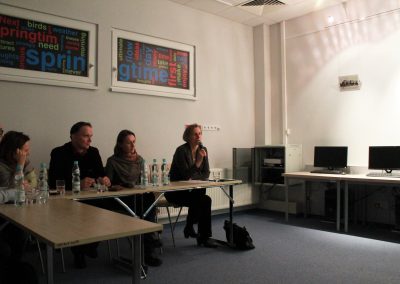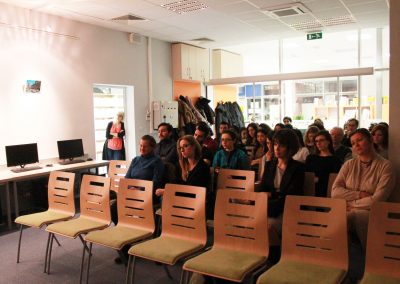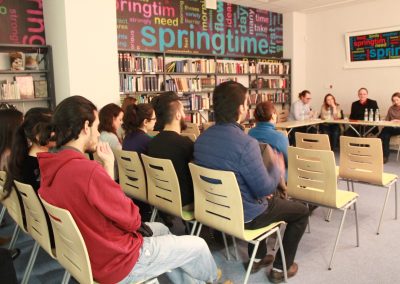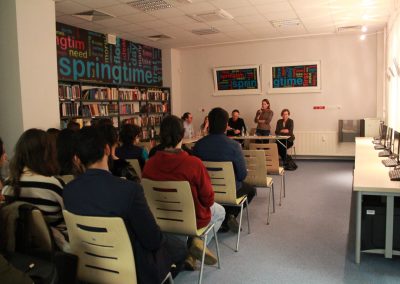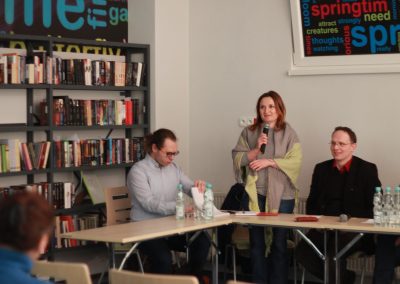On Wednesday we met in the Municipal Library Fil. 4 to participate in the debate entitled Gender ideology(ies): Man and woman – different by nature, inequal by society? We tried to find the answer to this question with our four guests: sociologists Borys Cymbrowski and Anna Czerner, philologist Katarzyna Molek-Kozakowska and biologist Elżbieta Pogoda.
We were aware that for most people the term gender is unfamiliar or even unfriendly, especially when someone is not a philologist or a social researcher, so we started with the basic questions: what gender is, how it exists in our respective fields of studies, and if there exists gender ideology. We can say that gender in general is about social consequences of being men, women or the others, because in the opinion of Elżbieta Pogoda even from a biological point of view there are more than only two sexes. And there is no evidence that one sex has an advantage over another.
In Polish media we encounter some false beliefs about the meaning of the word “gender”. But as Borys Cymbrowski mentioned it is a problem of confusion of nature with culture, because in the Polish language we have only one word (płeć) for gender and for sex. So some commentators confuse biological meaning with the cultural one. They accuse gender scholars of promoting a dangerous ideology which tries to convince people to choose their sex. As Anna Czerner said, the truth is that in the social sciences gender was a neutral category to analyse the relations between people in society, but unfortunately some institutions and politicians took one of the least popular topics in gender studies and used it as a basis to create and apply gender ideology as a political tool.
After that we focused mostly on language aspects within gender issues. Katarzyna Molek-Kozakowska indicated that for her it was easier to introduce herself in English than in Polish, because in Polish most names of academic professions have only a masculine gender, or even if it has a female gender, masculine forms sound more serious and more prestigious. But language is not a constant phenomenon – it is changing all the time. Twenty years ago we considered some female forms of words as strange, but today we take them for granted. We concluded that it is important to include more women-related forms to language, and it is one of the main catalysts of social changes in the public sphere.
We are really glad we could discuss it with you and with the citizens of Opole. We would like to thank you all for your presence and participation, and we hope to see you soon during another discussion. The aim of the whole debate was to clarify a little the problem of gender, but two hours is a short time when you are discussing such an important and complicated topic – so we treat this meeting only as a start. The debate is still open.
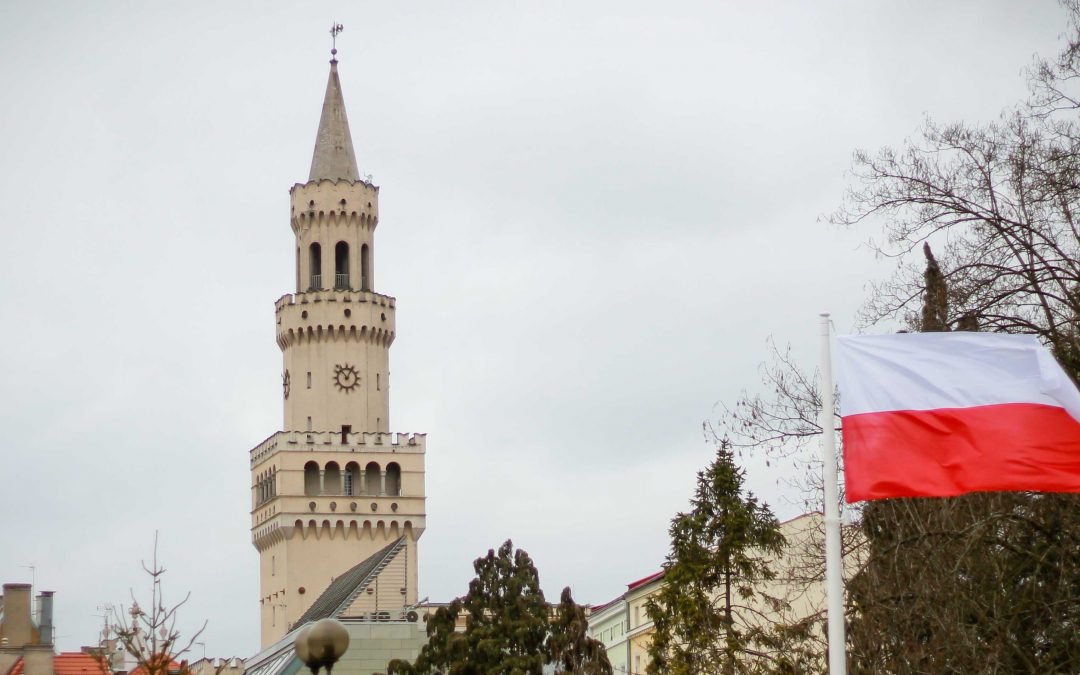
Another solutions dedicated to legal stay of foreigners
Dear Students! On 7 April 2020, the Council of Ministers has adopted as part of the extension of the “anti-crisis shield” a draft of another act aimed at counteracting the negative effects of the SARS-CoV-2 virus epidemic. It provides, among others, for...
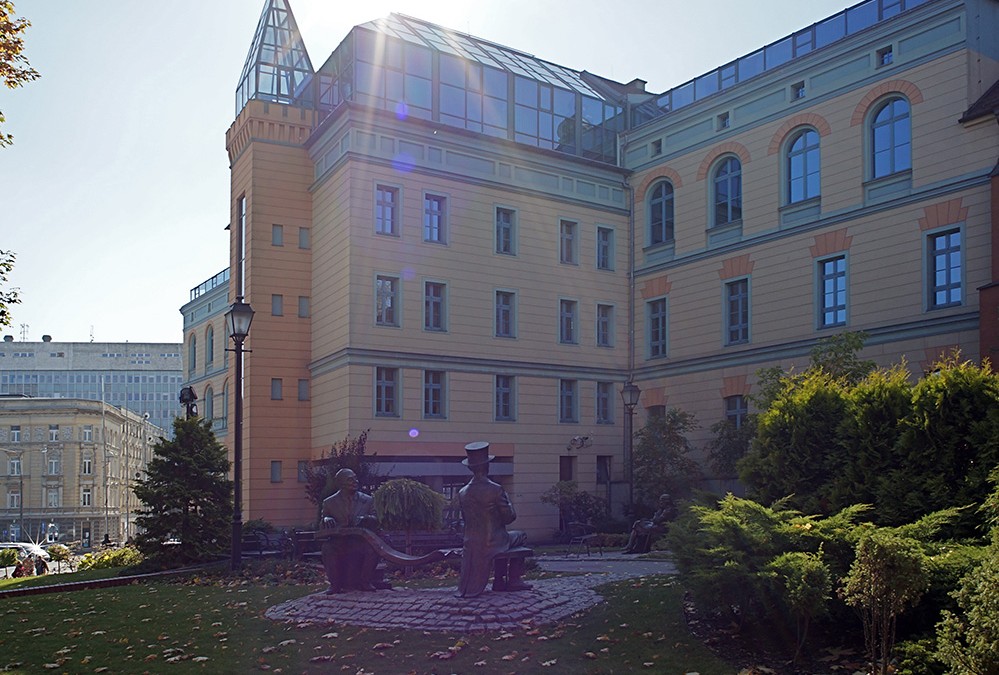
Medical help
Dear Students! We realize that due-to the COVID-19 pandemic, getting a doctor’s appointment can be problematic. If you need medical help, below you can find information that will help you arrange an online doctor’s appointment. As a foreigner in Poland you should be...

New safety rules
Dear Students! From Thursday, April 16, everyone has to wear a mask or scarf that covers both mouth and nose. It applies to everyone in public spaces (on the street, in shops and workplaces). Schools, universities, kindergartens are closed at least until April 26....
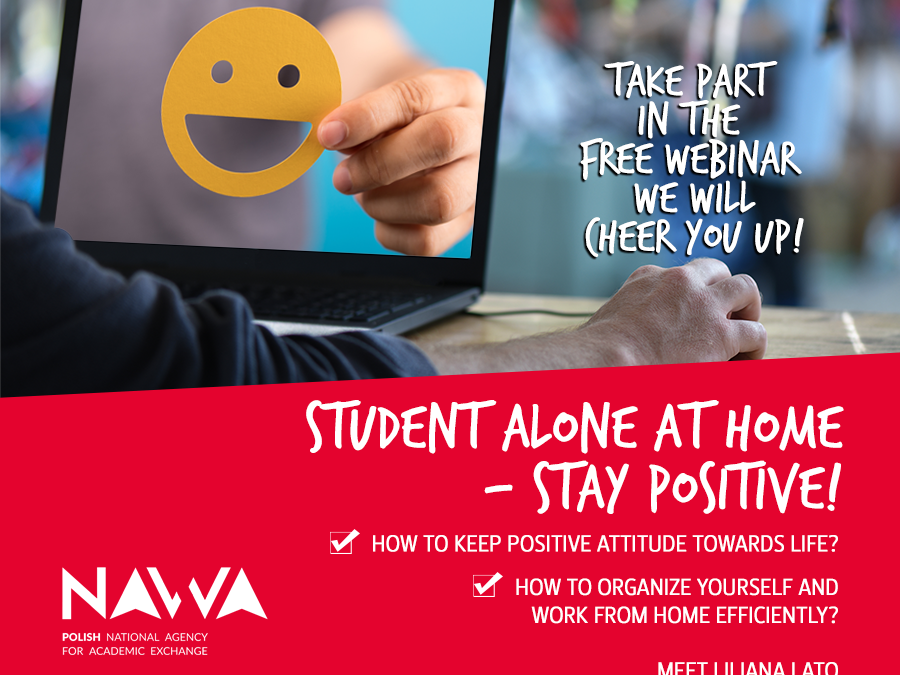
Take part in the webinar – “Student alone at home – stay positive!” April 9th 2020
Dear Students! As part of the "Ready, Study, Go! Poland" campaign, the Polish National Agency for Academic Exchange organizes a series of webinars for students under the slogan: ‘Ready, Study, Go! Poland for students in Poland!’. Don't miss the third webinar -...
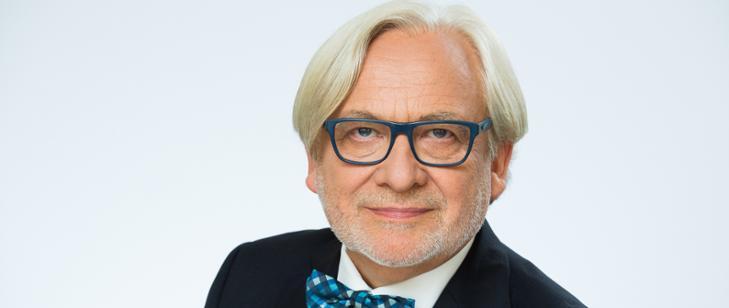
Friendly message for international students from Deputy Minister Prof. Wojciech Maksymowicz
Dear Students, We publish a special message from the Deputy Minister of Science and Higher Education, Prof. Wojciech Maksymowicz. ""Please take care of yourselves and each other at this time." More News
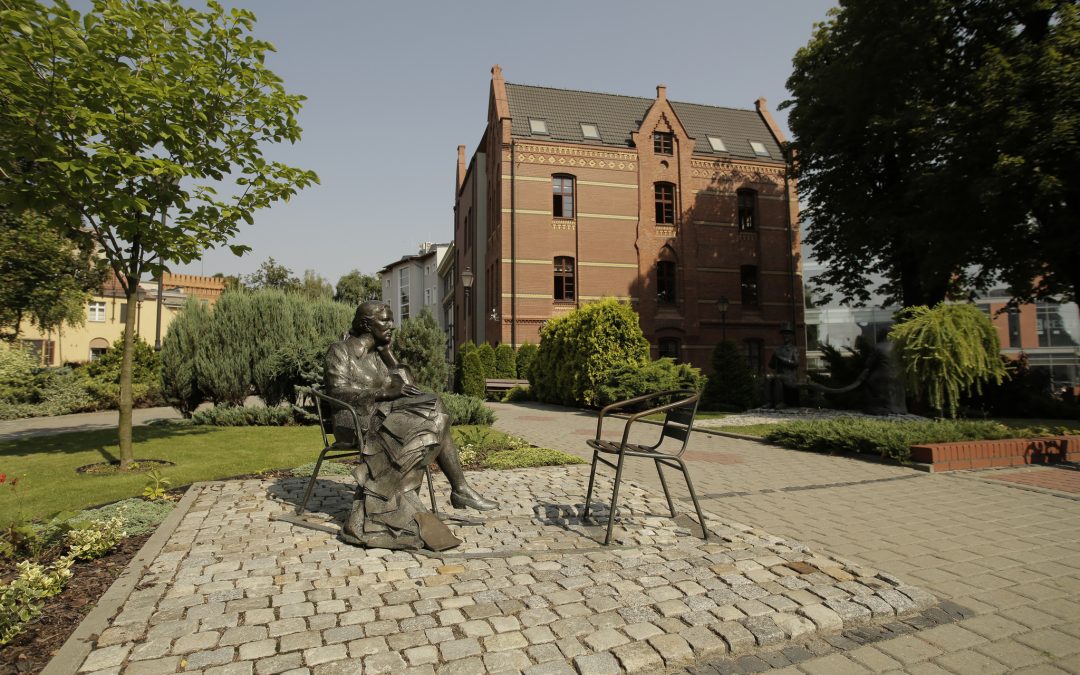
University’s financial support for students who face financial difficulties because of the pandemic
Dear Students, According to the Rector’s Ordinance no. 32/2020 from 2 April 2020, students who face financial difficulties because of the pandemic, can apply for one-time financial support. A student who applies for the support is obliged to submit documents...
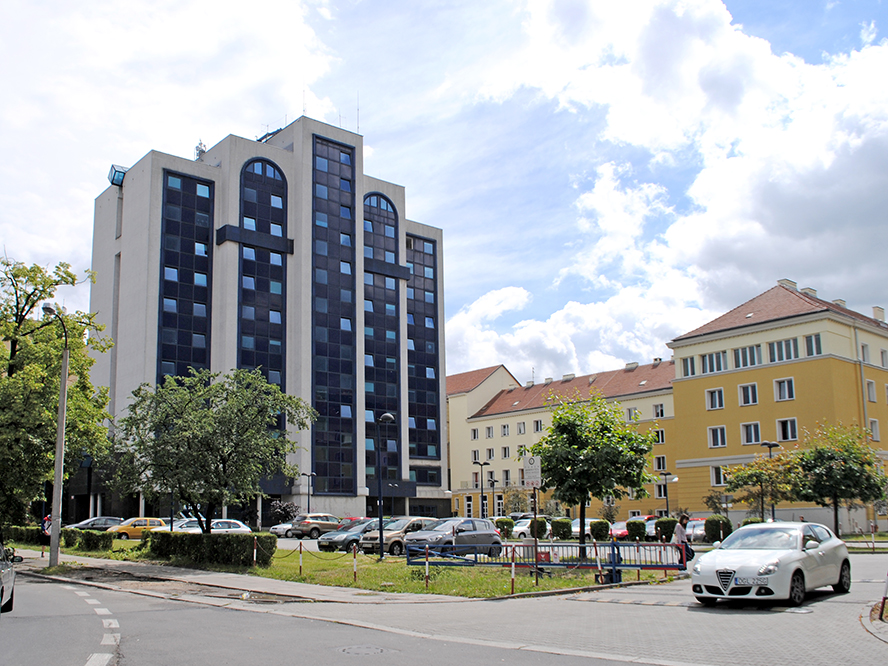
Dormitory fees
Dear Students! Rector of the University of Opole has introduced new ordinance regarding reduction in fees for residence at the Residence Halls of the Opole University. Students, who are residents of UO domitories but don't live there in April due to epidemic threat,...

Anti-crisis shield – get a financial support
Dear Students, On March 31, 2020, Polish Parliament has finished the legislative work on the project of “Anti-crisis Shield” the act which aims to mitigate the economic consequences of COVID-19. The President has signed that act which went live on April 1,...

Student alone at home – emotions under control
Dear Students! As part of the "Ready, Study, Go! Poland" campaign, the Polish National Agency for Academic Exchange organizes a series of webinars for students under the slogan: ‘Ready, Study, Go! Poland for students in Poland!’. This Friday (April 3rd, 2020) at 3.00...

Coronavirus outbreak – special solutions for foreigners
Dear Students! In connection with the current epidemiological situation, on 31 March 2020 came into force an act providing, inter alia, special solutions for foreigners in Poland. The regulations will allow people who want to pursue their current purpose of stay or...
